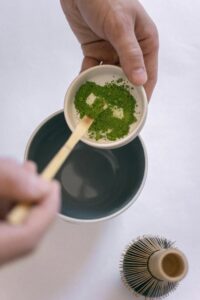Although people with ASD aren’t in need of a cure, they often require treatment for some of the symptoms associated with autism. As any parent knows, accessing medical treatment can stretch your budget, particularly for long-term or lifelong issues.
However, there are a range of budget-friendly ways to reduce the symptoms of autism spectrum disorder. Using supplements for autism can be a great way to target specific symptoms, including sleep problems and gastrointestinal disturbances.
What’s more, many parents favor natural supplements for autism spectrum disorder as they can be more gentle than pharmaceutical options – not to mention cheaper!
Who Needs Vitamins for Autism?
Nutritional deficiencies and low levels of minerals are widespread throughout the U.S., both in neurotypical individuals and those with ASD. Due to this, it’s advisable for everyone to have their vitamin and mineral levels checked on a routine basis.
Nutritional supplements for autism are particularly popular because deficiencies appear to be more common in children with ASD. Furthermore, many of the symptoms associated with ASD are also linked to specific vitamin and mineral deficiencies. As a result, many doctors and specialists incorporate vitamin supplementation into treatment regimens for people with autism spectrum disorder.
Why Do Vitamins and Supplements Help Autism?
Many people maintain that the right autism supplements can help alleviate some of the most challenges symptoms associated with ASD. This may simply be because people with autism have lower levels of certain vitamins and minerals.
If a child is experiencing symptoms of a vitamin deficiency, for example, these symptoms could be attributed to ASD. By uncovering the deficiency and resolving it with supplements, however, the related symptoms can be greatly reduced or eradicated completely.
In addition to this, it’s important to note that many children with autism have a relatively low vitamin intake. As food issues are common amongst children with ASD, they may lack essential vitamins and nutrients. In such instances, using the best vitamins for an autistic child can help to prevent them from developing a deficiency.
Furthermore, long-term gastrointestinal issues can make it more difficult to absorb minerals and nutrients from food. As children with ASD appear to experience gastrointestinal distress more frequently than neurotypical children, this may help to explain why kids with autism often have lower levels of vitamins and minerals.
As many vitamins and minerals are required for optimal functioning, anyone can experience symptoms of a deficiency. Fortunately, this can be easily treated with supplementation in the form of tablets, capsules, liquids and oral sprays.
What Are the Best Supplements for Autism?
Identifying the best supplements for autism can be tricky. As every individual has different vitamin and mineral levels, it’s important to identify what type of supplementation your child (or yourself) might need. In some cases, over-supplementation can lead to excessively high levels of vitamins or minerals, so it’s important to seek help.
Prior to starting a vitamin regime, it’s always beneficial to obtain medical advice from your clinician or specialist. They will be able to run tests to determine your child’s exact vitamin and mineral levels, which will help you to determine which supplements are necessary.
As well as seeking guidance from medical professionals, you can keep up to date with the latest research and guidance with resources like Autism Parenting Magazine. Designed for parents and caregivers, you’ll have access to a wide range of objective autism-related topics, subjects and content. In addition, you’ll have access to information designed to help decrease sensory sensitivities, self-injurious behavior and gastrointestinal distress.
Popular Supplements for Autism Spectrum Disorder
Many people notice beneficial effects when taking supplements for autism. Vitamin D, in particular, has been widely studied and is used by many families to minimize distressing symptoms of ASD. Research has shown that vitamin D supplementation can improve hyperactivity, irritability, social withdrawal, cognitive awareness and inappropriate speed, as well as limited eye contact.
B6 and magnesium are taken in conjunction to increase natural levels of the vitamin and mineral within the body. Although the effects have been variable, many people report an improvement in behavioral symptoms, such as increased impulse control, improved social interaction and better levels of eye contact.
As many children with autism experience sleep problems, melatonin is another supplement that is commonly used to treat the symptoms of ASD. Melatonin is a hormone that’s naturally present in the body and is involved in regulating the sleep/wake cycle. Children with ASD can have low levels of naturally produced melatonin, so it’s not surprising that a significant number experience problems getting to sleep or sleeping at appropriate times.
Using vitamins and supplements for autism isn’t just a budget-friendly way to treat the symptoms of ASD; it is also one of the most popular forms of treatments amongst doctors and clinicians. As one of the most widely recommended interventions for children with ASD, vitamin and mineral supplementation may be an effective way to minimize your child’s symptoms and enhance their experiences.





